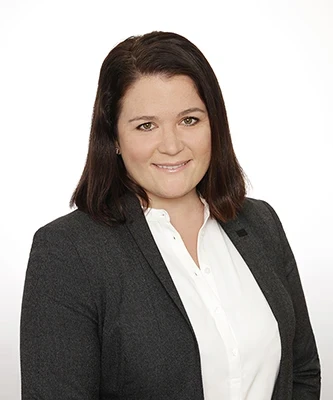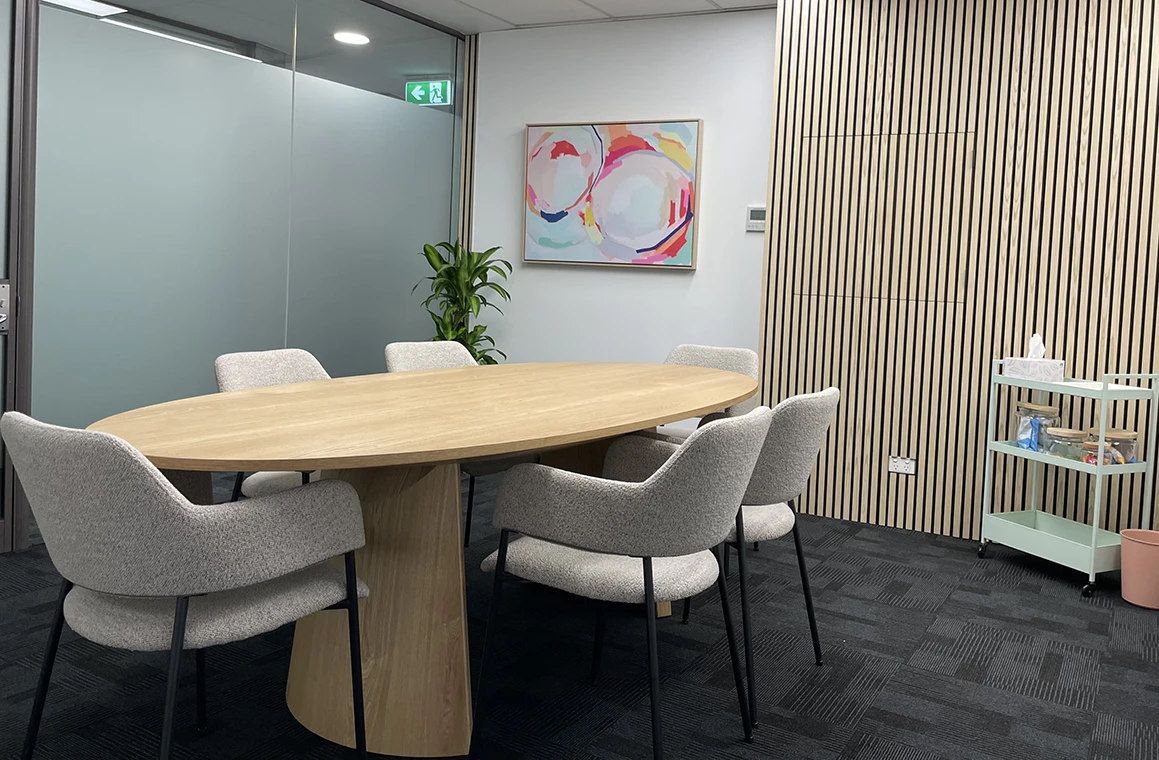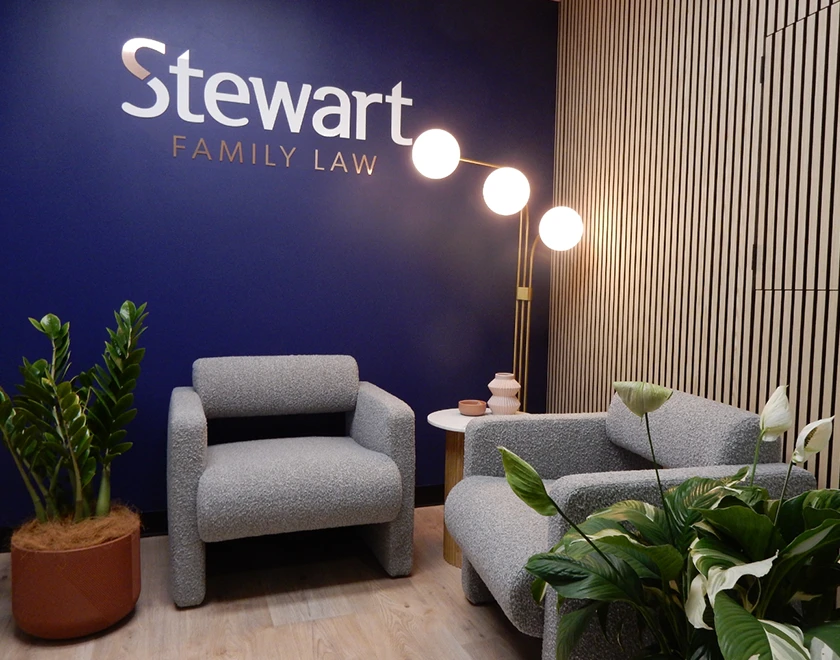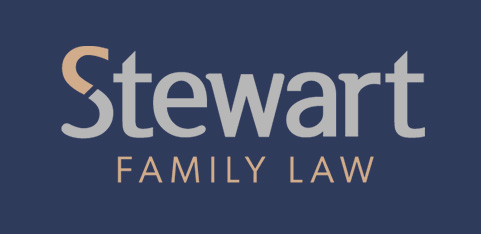Our Family Dispute Resolution team supports Brisbane couples and families seeking an environment to negotiate parenting arrangements and financial settlements. We understand that it’s hard to see meaningful relationships end up in a pile of paperwork and legal appointments dealing with how to divide joint assets and care for your children.
Our Family Dispute Resolution practitioners are highly experienced in helping you reach an agreement with your ex-partner amicably and cost-effectively. The mediation process often reduces conflict and allows you and the other party to address issues such as parenting arrangements and property settlement in a private and informal setting.
At Brisbane’s Stewart Family Law, our Director, Judy Stewart has guided mediation since 1995. Before her career in law, Judy was a Social Worker and a member of the Australian Association of Social Workers. This diverse background equips her with invaluable insights into the intricacies of human dynamics and child development. Judy’s legacy extends to tutoring in Alternative Dispute Resolution at the Queensland University of Technology Law School and serving as an Independent Children’s Lawyer.
Our Associate Director Temika Slee is also a Family Dispute Resolution Practitioner. With a double degree in law and journalism, Temika has practiced exclusively in family law since 2012 and is an Accredited Family Law Specialist. Temika has worked alongside Judy Stewart at Stewart Family Law since 2013.

Director Judy Stewart has been conducting mediations since 1995 and is a Registered Family Dispute Resolution Practitioner. Since 2017, she has been recommended as a Leading Family Law Mediator on Doyle’s list. Judy regularly conducts parenting, property and child-inclusive mediations and can provide certificates required under the Family Law Act to commence Court proceedings for parenting disputes.
Well-known for her pragmatic, organised and responsive approach, Judy combines her careers in both social work and law to efficiently and effectively assist parties in resolving their family law matters.

Associate Director of Stewart Family Law, Temika Slee is a Registered Family Dispute Resolution Practitioner who can conduct parenting, property and child-inclusive mediations. Temika can provide certificates required under the Family Law Act to commence Court proceedings for parenting disputes.
With a double degree in law and journalism, Temika has practised exclusively in family law since 2012 and is an Accredited Family Law Specialist. Temika has worked alongside Judy Stewart at Stewart Family Law since 2013. She is known for taking a conciliatory approach to resolving disputes and is also a collaborative law practitioner.

The family law system can be extremely stressful to navigate and is often overwhelmed with matters that can significantly extend the finalisation of legal issues. If you’ve decided to explore family mediation, Brisbane firm Stewart Family Law has created a warm and welcoming environment with comfortable rooms designed for productive discussions.
Mediation is delivered neutrally, with no one ‘taking sides’. This neutrality isn’t just a professional stance; it’s rooted in our belief in the profound impact mediation can have on the lives of couples and families. We’ve witnessed how it eases transitions during difficult times, allowing families to find common ground even when disagreements seem insurmountable.
We understand that what’s best for your family may not always be apparent initially. Through decades of experience we help both parties move forward in their healing journey.
Family Dispute Resolution (FDR) is a practical way to resolve issues without the stress and extra expense of going to Court. FDR is mediation attended by you and the other party and can include parenting and property matters. If you are legally represented, your solicitor is encouraged to participate with you; however, this is not a requirement.
If an agreement is reached, you or your solicitor, if you are legally represented, can draft a Parenting Plan or Minutes of Consent for filing in the Court.
Stewart Family Law offers:

Family Dispute Resolution (FDR) is an effective way to navigate issues following a relationship breakdown, offering a supportive environment for couples dealing with separation or divorce. Instead of the stresses and uncertainties of court proceedings, accredited Family Dispute Resolution Practitioners help couples preserve relationships, addressing parenting, property, financial agreements, and child support.
Australian courts face overwhelming caseloads, leading to lengthy delays. FDR offers a more dignified, private, and cost-effective way to reach agreements, avoiding public courtrooms. Court judgements can be final and stressful, potentially affecting parents and children. In contrast, FDR can strengthen communication and foster more robust parenting plans, helping individuals make clear, sound decisions that can lead to win-win solutions.
Section 601 outlines exemptions to the mediation requirement (s60I) as follows:
When an applicant seeks consent or responds to another party’s application.
It’s not. But, if you or your ex-partner are navigating the legal process to resolve financial matters, asset division or parenting plans, it’s a fantastic place to start that often results in a positive outcome.
If you or the other party are planning to begin a process through the Federal Circuit and Family Court of Australia in relation to parenting matters, you will most likely need an s60I certificate from a Registered Family Dispute Resolution Practitioner confirming that an attempt at FDR was made.
If you wish to commence Court proceedings in relation to property matters it is likely that you will need to prove that you have followed various pre-action procedures including attempting mediation. Once you commence Court proceedings the Court is likely to order that you attend mediation to attempt to resolve your parenting and property matters without the need for a litigated outcome.
If you’re navigating legal processes involving financial matters, asset division, or parenting plans, seeking Family Dispute Resolution (FDR) is often a fruitful starting point, frequently leading to positive outcomes. In many cases, initiating parenting proceedings in the Federal Circuit and Family Court of Australia requires an s60I certificate confirming an attempt at FDR.
However, an s60I certificate may not be needed if:
You’ve reached an agreement and wish to file consent orders.
Your matter is urgent.
Concerns about family violence or child abuse exist.
One party can’t effectively participate in FDR due to incapacity or other reasons.
Other circumstances specified in the regulations are met.
This information is derived from section 60I of the Family Law Act 1975. If you’re uncertain about needing an s60I certificate, it’s advisable to consult one of our expert family lawyers in Brisbane. Note: ‘Party’ refers to the other person(s) involved in the parenting dispute.

A Section 60I certificate remains valid within 12 months of the last FDR attendance or attempted attendance. Similarly, it can only be filed with a Court if issued within 12 months of the last FDR session or attempt. These time frames acknowledge the potential for evolving disputes and changing attitudes, often necessitating further FDR efforts.
Anything said or done during the FDR /mediation is confidential and cannot be used in Court or disclosed unless both parties consent except the following:
To protect a child from harm;
To protect a person from a threat;
To prevent damage to property or
To comply with Commonwealth or State Law.
If FDR is required in your case and you do not attend or make a genuine effort, a certificate will be issued to this effect. The other party can use that certificate and apply to the Court for parenting orders.
The Court may consider this in deciding costs and may order you to pay some or all of the other party’s legal fees. The Court may order you and the other party to attend family dispute resolution.
While the majority of cases find resolution through mediation, if your situation remains unresolved, you have several options:
If Family Dispute Resolution doesn’t lead to resolution and involves parenting issues, we provide a s60I certificate which will enable you to apply to Court.

Our dedicated mediation space offers a modern and neutral setting for effective Family Dispute Resolution. Comfortable rooms, expert mediators, and a supportive environment create the ideal backdrop for resolving family disputes, parenting arrangements, property settlement and any other issues related to relationship breakdown without the need to go to Court.
We can also facilitate child-inclusive Family Dispute Resolution and will ensure that you and your former partner feel comfortable and prepared to discuss family issues before you attend mediation. When you reach a mutually acceptable agreement, we can help you to make your agreement legally binding.
If you and your former partner agree to attend mediation conducted by our office, please contact us to reserve a date.
If the other party has not already agreed to attend mediation, we can invite them to attend mediation. If they agree, we will converse with you to arrange a suitable date. We will also provide you with an Intake Sheet and our FDR Agreement for your completion prior to mediation.
If we do not receive a response to our invitation within 7 days, we will send a follow-up invitation asking the other party to respond within a shorter timeframe. If the other party remains unresponsive or refuses to attend, we will issue a Section 60I Certificate in parenting matters. We can also issue a Section 60I Certificate if the other party is unreasonably delaying mediation.
To start the process for a child-inclusive mediation, the children would need to meet with an experienced independent child consultant. The parties will need to arrange the social worker and organise to pay their fees, and we can co-ordinate the date of the mediation with the parties and social worker.
The costs of the child-inclusive mediation would include the child consultant’s costs, and our mediation fees. We cannot speak for the child consultant’s costs, only our own.
If there is no agreement to attend a child-inclusive mediation, we can issue an invitation to mediate.
Our mediation fees for resolving family law issues are very competitive. Our service includes:
Charging an hourly rate rather than an unused daily fee.
Charging no minimum fee or cancellation fee.
Offering dedicated mediation rooms at no extra cost.
Our dedicated team is here to help you with the mediation process. Make an appointment for mediation online.

“I wanted to let you know, Temika – how very grateful I have been to have you represent me over the past few years. You have certainly seen my worst side and kept me sane when I have really needed it! Your professionalism is second to none and I couldn’t have asked for any one better to be on my side! So from the very bottom of my heart thank you!!”
KD, Brisbane
Our dedicated team is here to streamline the mediation process for you. Explore our user-friendly Online Mediation Calendar to select a date that suits you best.
Phone: 07 3221 0100
During mediation, Judy and Temika facilitate discussions between the parties and guide them towards a mutually acceptable agreement. The parties are encouraged to express their concerns and interests and to explore options for resolving the dispute. Please be assured that you do not need to be in the same room or have any communications directly with each other during mediation if you do not wish to do so.
The mediation can be conducted as a shuttle mediation, where the mediator moves between your separate rooms, or you can attend by Microsoft Teams or telephone. Please see other information on our website about being in separate rooms for mediation.
The vast majority of matters are resolved through the Family Dispute Resolution process.
Family Dispute Resolution is far less expensive than going to Court. It is a much quicker and more cost-effective way of resolving a dispute and you each maintain some control over the process. The Court process could take years and cost in excess of $100,000 each.
Mediation is less adversarial than going to Court. Family Dispute Resolution is generally a more collaborative process as the mediator will work with both parties to find a solution that is mutually agreeable. If you go to Court a stranger (the Judge) is imposing a solution on your family in relation to how your property is divided and how much time you spend with the children. Neither of you may be happy with the result.
Yes, both Judy & Temika offer both half-day and full-day mediations. We book the entire day for mediation (even if you anticipate you will only require a half day) and charge on an hourly basis so that you are not paying an unused daily fee. We refund for any time not expended and invoice after the mediation for the number of hours that were required.
Mediation with Judy Stewart usually commences at 9:00am. Mediation with Temika Slee usually commences at 9:30am. We can start at an alternative time as agreed by the parties and mediator.
You can attend mediation by:
Judy and Temika can conduct mediation with one party in person and the other by Teams or phone.
Judy and Temika can also conduct mediation at an alternative location as agreed the by parties (including the Gold or Sunshine Coast); however, they will charge their hourly rate for travel time to and from the venue. If they need to travel a later commencement time may be appropriate.
Judy and Temika do not conduct intake interviews prior to the day of mediation. The intake forms that we send parties upon confirming mediation provide Judy and Temika with the necessary information about the matter without the need for the parties to undergo an intake session prior to mediation.
Judy and Temika will also have a discussion with each party separately at the start of the mediation as part of the intake process. They are also available to answer any of your questions before mediation.
If both parties wish to attend an intake session prior to the day of mediation, this can be arranged at their hourly rate.
Mediation is run as a shuttle, with both parties being in separate rooms/Microsoft Teams meetings and Judy or Temika going between the parties. We can ensure that you do not encounter the other party if you have safety concerns.
Our policy is that the parties share our fees equally unless otherwise agreed. Mediation cannot proceed without agreement on how our fees are to be split.
We can ask the requesting party if they will pay our full fee. If they do not agree to pay the full fee (and you do not agree to pay half of the fee), we will issue them with a Section 60I Certificate in parenting matters.
This does not preclude you from attending mediation elsewhere in the future.
Please remember that one half of mediation fees is much cheaper than proceeding to Court. If you do proceed to Court, before making any decision the Court is likely to Order you to participate in a mediation in any event, with the fees met equally.
It is a matter for you to decide whether you have a lawyer present at mediation. It is not a requirement and Judy and Temika often conduct mediation where one or both parties are self-representing. We can keep you updated in relation to whether the other party will attend with a lawyer.
If you choose to attend without your solicitor but wish to speak with them during the process, Judy and Temika can facilitate these discussions.
Every matter is unique, and it depends on the issues in dispute. Some disputes are resolved in a matter of hours, whereas others may take all day.
Judy and Temika charge an hourly rate rather than a flat fee to ensure that the parties do not pay an unused daily fee.
You can bring a support person to mediation; however (due to confidentiality issues) their presence would need to be approved by the other party. Likewise, if the other party brought a support person to mediation, you would also have to consent to that person bring present. We address the issue of support people on the day of mediation. If there is an issue, the mediation can be run as a shuttle and support people can be with you when the mediator is not in the room.
We have no cancellation fee or minimum fee.
Unless there is a Court Order requiring attendance, then the other party cannot be compelled to attend mediation/FDR.
In the event that the other party does not attend then we can provide you with a Section 60I Certificate which is valid for 12 months. You can use this certificate to apply to Court. If you apply to Court, the Court is likely to order mediation if it hasn’t already occurred.
We can’t assist you with any legal advice and we need to remain impartial. If you have any further queries of a legal nature, then we suggest you seek independent legal advice.
Once both parties have agreed to attend mediation with our office, we will ask you to execute and return these documents prior to the commencement of the mediation:
If there is any material you wish to provide prior to the mediation, you can forward this to our office.
After initial invitations are issued, the other party is provided 7 days to respond. If we do not receive a response within 7 days, our office will issue a follow-up invitation allowing the other side to respond within a short timeframe. If after this time, our office does not receive a response from the other party, we may issue a Section 60I Certificate. If the other party refuses to mediate with our office, we may issue a Section 60I Certificate. We may also issue a Section 60I Certificate if it is evident the other party is using delay tactics to prolong the mediation process.
As per guidelines issued by the Attorney-General’s Department and the Family Law (Family Dispute Resolution Practitioners) Regulations 2008 (Commonwealth), practitioners are required to offer a reasonable choice of days and timeframe for attendance at FDR.
Judy and Temika can issue a Section 60I Certificate if it is evident the parties are using delaying tactics, however, only after a reasonable choice of days and timeframe has been provided.
If you have received an invitation to mediate, we have been contacted by the other party who has requested that we invite you to attend mediation conducted by our office. We do not act for the other party, and we are impartial.
We require a response within seven (7) days of the date of our initial invitation. If we do not receive a response, we will follow you up again. If we still do not receive a response or you decline to attend mediation, we will issue a Section 60I Certificate to the other party (in parenting matters only). If you agree to mediate, we will work with you to organise a mutually convenient date with the other party.
In parenting matters, we will issue the requesting party with a Section 60I Certificate which can be used to apply to Court. Even if a Section 60I has been issued you can still attend mediation elsewhere. Our role is to either conduct a mediation or issue a certificate indicating that you did not wish to attend mediation us.
If an agreement is reached, you, or your solicitor if you are legally represented, can draft a Parenting Plan or Application for Consent Orders and Minutes of Consent. Judy and Temika can also assist the parties to draft the agreement.
If your parenting matter doesn’t resolve, Judy and Temika will provide you with a Section 60I Certificate which you can use to apply to Court.
If you attend a Court referred mediation, we will provide you with a Certificate of Dispute Resolution after mediation. A Certificate of Dispute Resolution is only to be completed for Court referred mediation when parties have already commenced Court proceedings. Once proceedings have commenced the Court will order mediation within five months (5.26 Central Practice Direction) and the mediator needs to provide the Certificate of Dispute Resolution to the Applicant.
If you are ready to initiate your Mediation journey, contact us today.

WE CAN HELP
The breakdown of a relationship or marriage can be one of the most stressful and traumatic times in a person’s life. As a firm dealing specifically with Family Law, we understand your situation and can offer the expertise and sensitivity to help you with your matter. Centrally located at North Quay in Brisbane close to the law courts, public transport and affordable parking, the team is synonymous with responsiveness, keeping things simple, explaining issues to clients, and not overcomplicating matters. We also offer telephone and video-conferencing appointments.
CONTACT US
Office Address
Level 2/231 North Quay, Brisbane City, QLD 4000
Mailing Address
PO Box 12570 George Street Brisbane QLD 4003